MercoPress. South Atlantic News Agency
Stories for 2020
-
Saturday, October 17th 2020 - 09:00 UTC
World's largest meatpacker, Brazil's J&F, pleads guilty in US court on corruption charges

The owner of the world’s largest meatpacker pleaded guilty in U.S. federal court this week to paying nearly US$ 180 million in bribes to top Brazilian officials in exchange for state-backed financing used to go on a buying spree in the U.S.
-
Saturday, October 17th 2020 - 08:57 UTC
Brazilian iron ore exports increased 18,5% in September over a year ago; strong demand from China
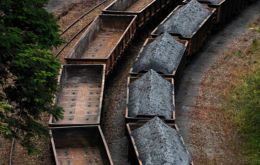
Brazilian iron ore exports increased by 18.5% in September compared to the same period last year, to 37.86 million tons, after Vale increased the pace of production. The volume shipped last month is the biggest since December 2015, when Brazil exported a monthly record of 39.5 million tons, according to the Ministry of Industry, Foreign Trade and Services.
-
Saturday, October 17th 2020 - 08:52 UTC
Moody's cuts UK debt rating on recession, Brexit and lack of clear budget plans

Ratings agency Moody’s cut the United Kingdom’s debt rating on Friday over the huge economic hit from the coronavirus crisis, Brexit and the lack of clear budget plans from Prime Minister Boris Johnson’s government.
-
Saturday, October 17th 2020 - 08:48 UTC
Brazil considering temporarily zero tariffs on corn and soybean imports outside Mercosur
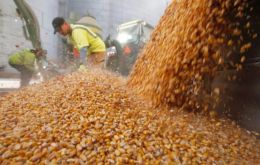
The Brazilian government is set to discuss a proposal that would temporarily eliminate tariffs on corn and soy imports from countries outside the Mercosur trade bloc, as recently happened with rice, a staple of the Brazilian diet.
-
Saturday, October 17th 2020 - 08:36 UTC
Brazilian Senator, close ally of Bolsonaro forced to resign over hidden cash
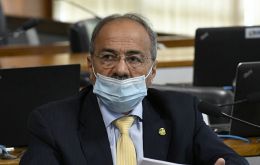
Brazilian lawmaker Chico Rodrigues was forced to resign on Thursday from the Senate after police found cash hidden in his underwear during a search of his home.
-
Friday, October 16th 2020 - 09:58 UTC
Argentina wants energy firms to invest US$ 5 billion to boost gas production

Argentina wants energy firms to invest some US$ 5 billion to boost hydrocarbon production and generate jobs in the country's prized Vaca Muerta shale play, as well as to bring in much-needed foreign currency.
-
Friday, October 16th 2020 - 09:36 UTC
Falklands examining quarantine regulations making them more rigorous
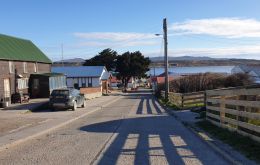
The Falkland Islands quarantine regulations are being examined by Members of Legislative Assembly with a view to tightening up rules and interpretation of rules, according to an interview with this week's Penguin News.
-
Friday, October 16th 2020 - 09:31 UTC
UN agency advises Latin American to stimulate economies and help contain poverty and unemployment

Countries of Latin America and the Caribbean must continue to ratchet up stimulus to beat back the devastating economic impacts of the coronavirus pandemic, the UN agency ECLAC said in a report issued this week.
-
Friday, October 16th 2020 - 09:30 UTC
US presidential campaign moves to dueling prime time at town halls; record funding for the Biden campaign

President Donald Trump and Democratic challenger Joe Biden will hold dueling prime-time town halls instead of a second presidential debate on Thursday, as Americans continued to swamp polling places in states allowing early in-person voting.
-
Friday, October 16th 2020 - 09:20 UTC
Switzerland bans the export of five toxic chemicals, including paraquat
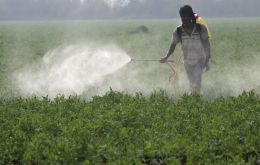
Starting from next year, Switzerland will not allow the export of five hazardous plant protection products already banned in the European country. The Swiss government approved the amendment to the law on chemical substances this week as part of measures to reduce risks associated with toxic chemicals. It added that the move is intended to help protect health and the environment in importing countries, particularly in the developing world.
